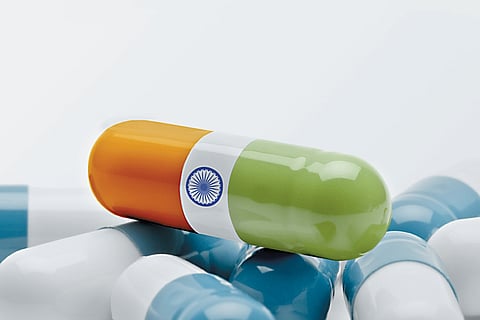

Just as India’s generic pharma companies were just about to attain leadership position globally, the sector is witnessing a growing unrest among the medical fraternity over the quality and efficacy of drugs produced in India. To make things worse, with a series of voluntary drug recalls by Indian firms, coupled with the recent US health regulator Food and Drugs Administration’s (FDA) clamp down on manufacturing units in India, concerns about the quality of drugs are only mounting.
“Fundamentally, there’s nothing wrong with the manufacturing practices of Indian pharma companies. As far as voluntary recalls are concerned, every company, be it in India or abroad, will experience some minor production malfunctions at some point of time. Just because there are few recalls doesn’t imply our entire manufacturing processes are flawed,” says Manni Kantipudi, CEO, GVK Biosciences. It is noteworthy that generic drugs account for nearly 85 per cent of medicines prescribed in the US and India supplies over 40 per cent of this. India is also the second biggest generics supplier in the US after Canada. So, any concern, genuine or created by media frenzy, will have a bearing on business prospects.
Some of the latest product recalls include the country’s second largest generics maker Dr Reddy’s Laboratories Ltd, which initiated a voluntary recall of more than 58,000 bottles of its heartburn drug lansoprazole. This was done due to a microbial contamination concern in the US market. Prior to this, Ranbaxy too recalled more than 64,000 bottles of a generic cholesterol-lowering drug after doses were mixed up in a bottle. This was followed by Sun Pharmaceuticals, which recalled 2,528 bottles of a diabetes drug after a bottle was found to contain an epilepsy treatment. According to a spokesperson at Dr Reddy’s, the drug recall was classified “Class II,” which indicates a remote chance of severe adverse consequences or death due to the product flaw and is hence devoid of any financial implication on the company. The latest to come under the regulator scanner was Sun Pharma’s Karkhadi manufacturing plant in Gujarat.
When a drug is recalled, the product is removed from the market for a correction on the grounds that it is either defective or potentially hazardous. Sometimes, a company discovers a problem and recalls a product on its own. On other occasions, a company recalls a product after a respective country’s regulator raises concerns. While product recalls are not uncommon, the string of FDA alerts and import bans on Indian manufacturing facilities in the recent past has compounded the concerns of the manufacturers.
Citing quality control problems ranging from data manipulation to sanitation, the FDA had earlier banned import of products from Ranbaxy Laboratories Ltd, Wockhardt Ltd and Aurobindo Pharmaceuticals Ltd.
Allaying fears about the quality of Indian pharma manufacturing, P V Appaji, ED, Pharmexil, a trade body for pharma exporters, says, “One should understand the gravity of the issue. Regulators have not found fault with the quality, safety or efficacy of the drugs produced here. There have been issues related to documentation or sanitation and Indian companies are indeed capable of rectifying them. These, do not alter the efficacy, safety or quality of drugs.”